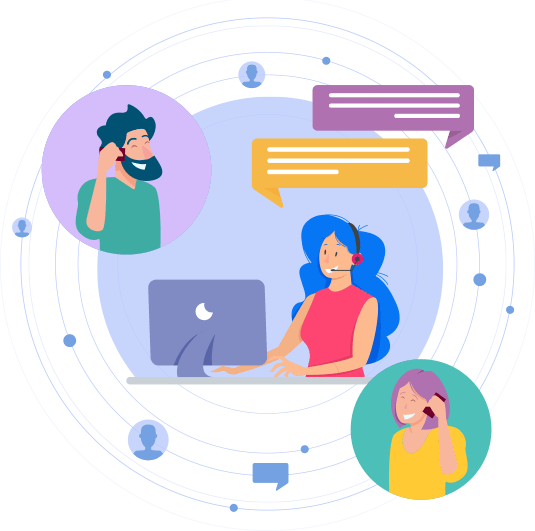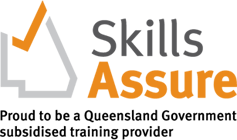There’s no doubt that education has constantly changed throughout the years. Now, in 2024, the way we learn is evolving. This creates a new chance for you to acquire skills and get your dream career.
Online vocational study provides a convenient and accessible way for you to gain practical skills and specialised knowledge in various fields. Sage Education offers this type of learning so you can apply for jobs with confidence. It’s about developing your skills and increasing your chances of success with future employers.
Online study is designed to meet the needs of a rapidly evolving job market. Learning about its future trends can help you determine whether this is the right path for you. Just keep reading to discover the top 10 trends of online vocational study!
1. Artificial Intelligence
Artificial intelligence continues to change the way you learn new job skills. It is a powerful tool that will continue to shape the learning experience going forward.
For example, you might see customised learning experiences that adjust to the specific requirements and speed of every student. These AI algorithms examine how users interact, evaluate their progress, and offer personalised feedback. All of this could guarantee that you go on a tailored educational path. This personalised approach should improve your understanding and speed up your skill development.
AI tools are also helping instructors by automating administrative tasks, which gives them more time to concentrate on interactive teaching and mentoring. AI can identify patterns in your performance and allow educators to customise their teaching methods and interventions.
2. Personalised Learning
Personalised learning is expected to change how people gain practical skills. This is because traditional education models struggle to meet the diverse learning styles of students. However, personalised learning resolves this issue by customising educational experiences based on your strengths and preferences.
Online vocational study uses advanced technologies and adaptive learning platforms to provide personalised learning experiences. These platforms analyse your learning patterns, preferences, and progress to create customised learning pathways.
For example, someone with a childhood care background may receive a curriculum tailored to advanced support techniques. This personalised learning can boost engagement, motivation, and the overall effectiveness of the learning process. You can learn at your own speed and receive specific assistance when you need it.
3. Augmented Reality
Augmented reality offers a realistic and immersive learning experience. This is especially beneficial for those interested in healthcare, caregiving, and related professions.
This trend can create realistic scenarios for care job training, giving students the opportunity to practise and improve their skills in a controlled virtual setting. For example, future nurses can participate in augmented reality simulations that mimic challenging patient care situations. This helps them enhance their critical thinking abilities and develop a better understanding of different situations.
Also, augmented reality can help caregivers learn by adding digital information to realistic situations. For example, caregivers in a first aid course can wear AR glasses to get immediate instructions on giving CPR. This improves the learning experience and makes sure caregivers are ready for their daily tasks.
4. Virtual Reality
Virtual reality can mimic the difficulties and situations encountered in real jobs. In terms of caregiving, this could be helping an older person with mobility problems or dealing with medical emergencies. Being in a virtual environment offers a secure and lifelike platform for learners to develop their vocational skills.
This trend also focuses on hands-on learning, which allows you to handle various situations that you might face in your profession. Those taking an Assist Clients with Medication Skill Set course could learn how to administer medications and arrange the right dosages.
VR in care-related vocational study is valuable because it helps connect theory and practice. You can experience the challenges of caregiving and develop essential skills like decision-making, emotional intelligence, and adaptability. These skills are crucial in the demanding field of care.
5. Gamification
Gamification is the incorporation of game-like features like competition, points, and rewards into online learning. This approach can increase your involvement and motivation in vocational training for your dream job.
Of course, gamification uses the natural human inclination for competition, accomplishment, and acknowledgment. Online vocational courses can turn ordinary lessons into more thrilling challenges. This includes adding game-like features like levels, points, and badges. This increased involvement leads to higher motivation, which encourages learners to engage in their education.
Numerous vocational platforms that incorporate gamification include collaborative features. These can promote teamwork among learners to solve problems or accomplish shared objectives. This also fosters a sense of community among learners, similar to the teamwork needed in professional settings.
For example, social learning components like discussion forums or multiplayer simulations allow you to exchange insights, ask questions, and benefit from other people’s experiences.
6. Lifelong Learning
The focus on continuous learning is becoming more and more important. Lifelong learning is a transformative method that promotes flexibility and expertise throughout your career path.
Online vocational training is a great platform for lifelong learning because it offers flexible learning paths. You can select from a range of courses, micro-credentials, and workshops that focus on specific skills and knowledge gaps. This modular approach enables you to constantly improve your skills and adjust to evolving industry needs.
You can accomplish lifelong learning by breaking down information into small, easily understandable portions. Nowadays, online vocational training platforms are actually integrating microlearning modules. This allows professionals to access content in brief and concentrated sessions. This method caters to busy schedules and encourages a regular practice of learning by making it more manageable.
Other benefits of lifelong learning include:
– Personalised learning journeys
– Industry relevant updates
– Integration of emerging technologies
– Continuous support and networking
7. Blockchain
Blockchain technology is advancing in different sectors, including online vocational training. When it comes to vocational training, blockchain has the potential to improve efficiency, transparency, and security in various processes.
Here are some key aspects of how online vocational training could incorporate blockchain:
Immutable Certificates
Blockchain technology allows for the development of secure and unchangeable digital certificates. This guarantees that the qualifications you obtain from vocational courses or the acquisition of specific skills cannot be modified or forged. This also establishes a strong sense of trust and authenticity.
Individual Ownership
Blockchain allows learners to have their own educational records. You can have a decentralised record of your accomplishments without depending on centralised authorities. Any learner can share these records with employers or educational institutions to simplify the employment application process.
Specific Achievement Tracking
Blockchain makes it easier to issue micro-credentials and badges for particular skills or accomplishments in a course. These micro-credentials are saved on the blockchain, giving a reliable and comprehensive overview of your abilities that go beyond regular certificates.
8. Mobile Learning And Microlearning
Mobile learning is a type of educational training that occurs through mobile devices like smartphones and tablets. This method uses the convenience and widespread use of mobile technology to provide educational content and training materials to learners at any time and any place.
You can access training modules and materials on your mobile device. This gives you the flexibility to study at your own pace and convenience. This accessibility is also beneficial for working professionals who may have tight schedules or those who prefer learning on the go.
On the other hand, microlearning is a teaching method that provides information in small and easily understandable parts. In online vocational training, microlearning simplifies complicated subjects into manageable modules.
Microlearning is all about providing concise and targeted learning goals within a short timeframe. This is especially beneficial for vocational training, as it allows professionals to acquire practical and focused information without spending too much time. For example, you can choose how long to spend on a specific module when studying teaching online.
9. Better Accessibility and Inclusivity
Online vocational training has undergone a significant change with the implementation of universal design principles. Platforms now prioritise accessibility for people with different abilities and learning styles. This shift towards universal design guarantees an inclusive learning experience for everyone.
This training is also catering to different languages. With the workforce becoming more diverse, offering content in different languages allows people from various linguistic backgrounds to access vocational training programs. This inclusivity helps with learning and fosters a globally connected professional community.
Some other notable benefits include:
– Captioning and transcription text
– Responsive design and mobile-friendly interfaces
– Collaborative learning environments for interaction, discussion, and group projects
– Learners can choose visual aids, interactive simulations, auditory resources, or hands-on activities
– Deeper understanding of different perspectives and experiences
10. Upskilling
Upskilling involves getting new skills or developing ones you already have. This is essential for matching the changing needs of the job market. It also involves gaining extra knowledge and abilities that are relevant to your dream career.
Online platforms for vocational training are essential for helping people improve their skills. They provide a convenient and easy way to learn specific abilities. These platforms offer various courses, modules, and programs that are designed for different jobs. At Sage Education, we have courses designed for jobs in the care industry. For example, you can take the Certificate III in Individual Support (Ageing or Disability) course if you’re interested in helping elderly people.
Upskilling covers various areas, such as learning about the latest technologies and tools or staying informed about industry regulations.
Upskilling is in increasing demand because of how fast technology changes. You must continuously improve your skills to stay competitive and flexible in the job market. Online vocational training is a popular option because you can upskill without interrupting your current career or daily routine!
Enrol with Sage Education for Online Vocational Study
Vocational training speeds up career development by teaching practical skills that are specific to a job. It improves the chances of you getting hired, as you are able to meet the needs of the industry with confidence!
At Sage Education, we understand the transformative power of quality education. Our commitment to offering industry-relevant courses ensures that you can succeed in your dream career.
Enrol with us today and become part of our community! Let our online vocational training push your career growth and open doors to new opportunities! You can also contact us with any questions about this training.



